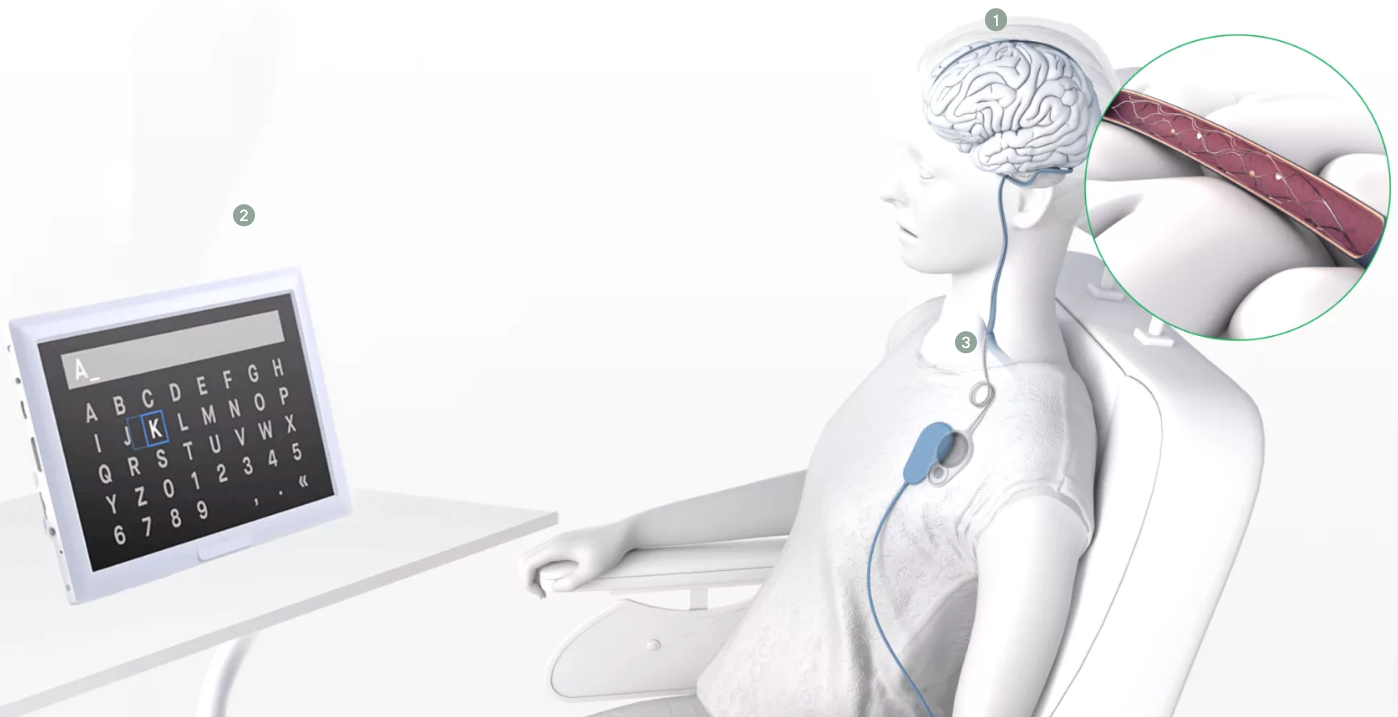Synchron: Overcoming Neurological Disorders Through Technology
An Advanced, Minimally Invasive Brain-Computer Interface

For those living with neurological disorders, routine tasks can often become insurmountable obstacles. Seemingly straightforward activities — such as checking email, texting a family member, or managing personal finances — become difficult endeavors. Some patients can ultimately regain their cognitive abilities through months and sometimes years of rehabilitation, but these treatments don’t always lead to recovery. While experimental implants exist, they are often prohibitively invasive, requiring major brain surgery to utilize.
AV portfolio company Synchron has developed a promising brain-computer interface (BCI) installed through a minimally invasive procedure. Synchron’s device interprets signals from the brain, enabling the treatment of brain pathologies such as paralysis and epilepsy. The technology has allowed trial patients to perform various tasks via a smartphone connected to the device’s interface through Bluetooth. The result is a medical device with the possibility to allow people with neurological conditions to regain a portion of their day-to-day functions.
Smart Stents and Thought-Driven Software
The key element in Synchron’s revolutionary technology is the stentrode — an endovascular implant located in a vein that runs alongside the part of the brain, which generates signals related to movement and motor functions. The stentrode interprets electrical signals from the brain, sending them to a receiver-transmitter implanted in the chest that communicates with an external device.
For patients, implantation of the stentrode is similar to angioplasty. A catheter is used to position the stentrode in a patient’s brain, requiring no major surgery and eliminating long recovery times or procedure complications. In addition to the implant hardware, Synchron has also developed a thought-controlled software platform, allowing patients to interact with a wide variety of services and devices, including smartphones, desktop computers, and other Bluetooth-connected devices.
See video policy below.
What We Like About Synchron
Established Co-Investors: ARCH Venture Partners and Khosla Ventures maintain strong life sciences and healthcare portfolios. Lead partner Robert Nelsen of ARCH is a Midas List investor who has worked with over 150 companies, including 39+ which have reached valuations over $1 billion.
Massive Market Potential: Synchron’s technology has incredible potential across a wide variety of medical verticals, such as treating patients with paralysis, blindness, depression, epilepsy, chronic pain, and depression. The technology could also be used to provide in-depth diagnostics on patients that could be applied to other treatments.
Patent-Backed IP Moat: Synchron received an IDE exemption from FDA, the only BCI company to do so. They already have safety data on patients from Australia. Further, they have been granted a “Universal Switch” patent, which blocks other implanted BCIs from controlling external devices.
How We Are Involved
Castor Ventures (for the MIT community) sponsored Alumni Ventures’ investment in Synchron’s $75 million Series C led by ARCH Venture Partners, with participation from existing investor Khosla Ventures. Sibling funds Blue Ivy Ventures (for the Yale community), Green D Ventures (for the Dartmouth community), Nassau Street Ventures (for the Princeton community), Towerview Ventures (for the Duke community), and AV’s Total Access Fund also participated in the round.
Want to learn more?
View all our available funds and secure data rooms, or schedule an intro call.
New to AV?
Sign up and access exclusive venture content.
Contact [email protected] for additional information. To see additional risk factors and investment considerations, visit av-funds.com/disclosures.